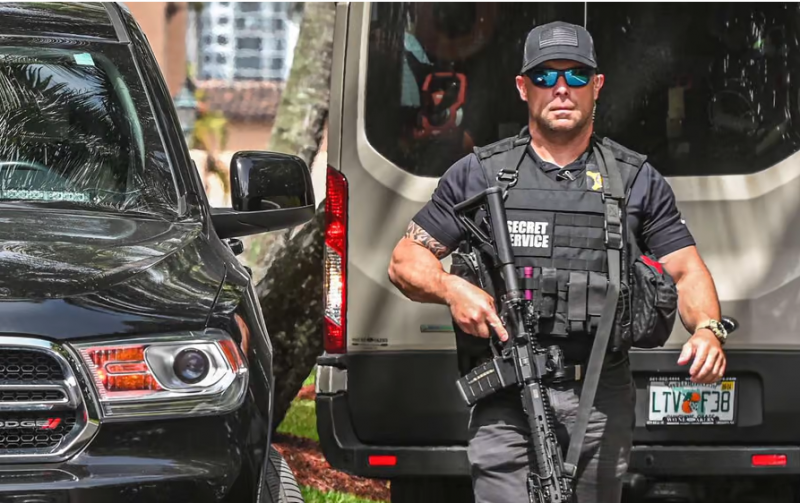
United States: The FBI conducted an unprecedented search of former President Donald Trump's home in June, following an attempt to retrieve classified documents from his Florida property. According to the US Department of Justice, the FBI had evidence that the documents were deliberately withheld from him.
Prosecutors on Tuesday revealed their case for obstruction of justice in a 54-page document, the first publicly allegation that two Trump aides in June falsely testified that the former president kept all official documents in his home. was changed to. Leaving the White House in January 2021.
Additionally, it was also revealed that when FBI agents visited Trump's Mar-a-Lago resort in Palm Beach, Florida in June to retrieve the record, "Trump attorneys told government personnel that no was also expressly prohibited from opening or viewing the box". storage room.
The department said in a document submitted to the US District Court in the Southern District of Florida that "the government also developed evidence" that "government records were concealed and removed from storage rooms and attempts were made to obstruct the government's investigation." Were. "
It published a photo of some documents containing classification marks discovered inside Trump's residence, some of which refer to secret human sources.
The Justice Department filed papers before US District Judge Eileen Cannon ahead of a court hearing in West Palm Beach on Thursday. She is considering Trump's request to appoint a special master to conduct a privilege review of records taken from Mar-a-Lago on August 8—many of which are classified—and who will be appointed by the president.
In delicate cases, the court may appoint a special master, an impartial third party, to review documents that may be protected by attorney-client privilege and ensure that investigators do not view them as unfair. .
For example, during the searches of Rudy Giuliani and Michael Cohen, two of Trump's former lawyers, in homes and offices, a special master was appointed.
Trump's lawyers argued in the former president's initial request in court that he wanted to protect documents covered by the executive privilege doctrine, which may shield some presidential communications.
Legal officials disputed that claim, saying it was illogical for a former president to claim executive privilege against the executive branch.
Later, Trump's legal team focused his request by requesting a privilege review without specifically mentioning executive privilege.
On Tuesday, the Justice Department announced it was against the appointment of the special master.
Because the records "don't belong to him," according to prosecutors, Trump's case lacks standing.
One of the many federal and state investigations Trump is facing came at a rapid pace over a search of his residence on August 8.
After Trump returned 15 boxes of government records sought by the US National Archives in January, the FBI reviewed 184 documents "with taxonomy markings," according to a revised affidavit supporting the discovery, made public by the department last week. and searched.
The FBI was informed of the situation after the National Archives found classified documents, some of which pertained to intelligence and secret human sources.
On Tuesday, the Justice Department claimed it had made several attempts to recover all the records.
But ultimately, it offered evidence that more material may have been kept at Mar-a-Lago and hidden from investigators.
After that, the FBI removed 33 more boxes and other items during its search on August 8; Some of these items had "top secret" markings, a classification level reserved for the country's closest secrets.
Trump's justifications for keeping the material have changed, and he has not provided an explanation for why he did not return all the records.
He has said in the past that he declassified every document, citing the president's comprehensive declassification authority.
In contrast, the government's filing from Tuesday denied it.
"Neither the lawyer nor the custodian claimed that the former president had made the documents public or asserted any claim of executive privilege when presenting the documents," the prosecution claimed.
He said the record had been "altered in a way that suggested the lawyer believed the documents were classified" and presented in a "Redveld envelope" double wrapped in tape. When Jay Bratt, director of the Justice Department's Department of Defense, went to Mar-a-Lago with three agents in June to obtain additional records.
According to the department, there were 38 separate documents inside the envelope, 38 of which had classification marks of "Top Secret," "Secret," or "Confidential."
Due to insufficient content moderation, Google Play rejected the Trump's Truth Social Android app
Criminal investigation in Georgia might be the case that impeaches Donald Trump
US judge: Donald Trump search affidavit should be partially unsealed